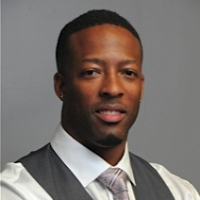 Coventry Misdemeanor Lawyers, Connecticut
Coventry Misdemeanor Lawyers, Connecticut
Sponsored Law Firm
-
 x
x

Click For More Info:
-
Barry, Barall & Spinella, LLC
989 Main St Manchester, CT 06040» view mapCriminal Defense Law Your Future Matters To Us
At Barry, Barall & Spinella, LLC, our only goal is to protect your best interests. We are accomplished attorneys whose focus is handling criminal defense & personal injury claims.
800-998-0430
Not enough matches for Coventry Misdemeanor lawyer.
Below are all Coventry Criminal lawyers.
Sponsored Lawyers
1-6 of 6 matches
Car Accident, DUI-DWI, Slip & Fall Accident
Donald is orginally from Chicago, Illinois. He is 2003 graduate of Mississippi State University (MSU). He received his Masters in Public Policy Administration from MSU in 2005, and went on to earn his law degree from the University of Wyoming College of Law in 2009. Donald's practice areas are criminal defense, including felonies, misdemeanors, DWIs and other motor vehicle violations. Donald is also contract public defender for the state of Connecticut, where he handles child support contempt defense and modifications. He also has experience handling personal injury matters, including motor vehicle accidents and slip-and-falls. He is admitted to practice before the Connecticut state courts as well as the U.S. District Court, District of Connecticut, and Connecticut's Bankruptcy Courts. Donald is a member of the Cawford Bar Association, and Connecticut Bar Association. Donald's hybrid barbershop/ law office, "Legal Cuts" has been featured by several news organizations including the Connecticut Law Tribune, NPR (radio), The American Bar Association, and The New Britain Herald.
(more)


 Ryan P. Barry Manchester, CT
Ryan P. Barry Manchester, CT Practice AreasExpertise
Practice AreasExpertise

